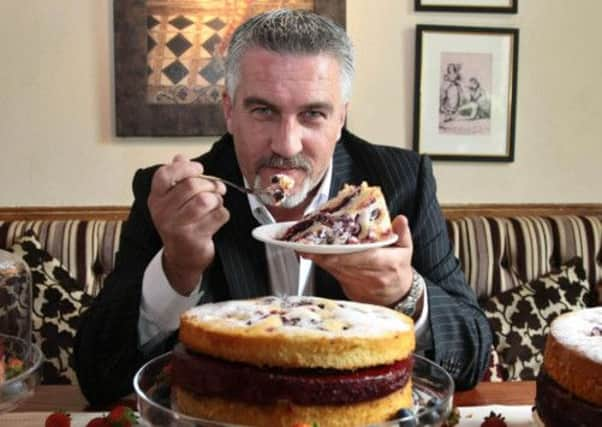Can baking make us happier and help fight depression?


The Great British Bake Off returned to our television screens this week, much to the delight of the show’s multitude of fans.
Ratings for the series opener showed that 5.6 million viewers watched the BBC Two programme, up from four million who tuned into the first episode in August last year. The Bafta award-winning show has become a phenomenal success in the space of just four years and turned its judges Paul Hollywood and Mary Berry into household names.
Advertisement
Hide AdAdvertisement
Hide AdAs a nation it seems we’ve become hooked by the baking bug. First it was cupcakes, then it was macaroons and scones. The latest trend is for cronuts, which might not sound particularly appealing but are, apparently, a delicious combination of croissants and doughnuts.
Baking is one of life’s little pleasures and there is something undeniably comforting about the smell of bread baking in the oven, or the sight of a freshly-made Victoria sponge, topped with icing sugar, just waiting to be demolished.
But there’s perhaps a more serious side to it all. The winner of last year’s Great British Bake Off John Whaite has told how baking has helped him tackle his depression and turn manic, erratic negative energy into something constructive. “It can’t cure it but it helps,” he said, in a recent interview.
And he’s not alone. Novelist Marian Keyes has also used baking to help her deal with depression, while specialist food creative consultant Emma Thomas, aka Miss Cakehead, set up the Depressed Cake Shop - a charity initiative aimed at raising awareness of mental health issues. Earlier this month, the Depressed Cake Shop ran a series of pop-up cake stalls across the country that sold only grey cakes, raising thousands of pounds for mental health charities in the process.
Advertisement
Hide AdAdvertisement
Hide AdThomas believes baking is a form of therapy that anyone can do. “If you suffer from depression it can be difficult to concentrate on things for a long time, but cakes can be ready in half an hour. It’s not like a cross stitch that can take a month, there’s an instant reward,” she says. “Baking isn’t a chore, it can boost someone’s sense of self-worth and there’s something therapeutic about bashing the dough.”
Dr Cosmo Hallstrom, fellow of the Royal College of Psychiatrists, says although it’s difficult to measure the precise benefits of baking in terms of mental health, it does seem to help some people. “There’s no measured evidence but when someone gets involved with any kind of structured activity it’s good for them, so in this sense baking is a form of therapy.
“One of the principles of behavioural therapy is that if you’re depressed you do less and less pleasurable things, but if you start doing something then gradually you feel happier,” he says.
“Some people don’t want to sit down in front of a group and talk about the bad things in their life, and baking doesn’t need massive amounts of organisation and it’s not emotionally challenging.”
Advertisement
Hide AdAdvertisement
Hide AdDave Bennett, owner of the Sunshine Bakery, a French style patisserie in Chapel Allerton, Leeds, believes our renewed love affair with cakes and baking has been sparked by The Great British Bake Off.
“It’s brought back old skills that were starting to die out because people were going to the supermarkets rather than their local bakery,” he says.
“People watched it and saw ordinary people making these beautiful things on the telly and thought ‘I could do that.’ It made them realise that what they made at home was much better than what they could buy in the supermarkets.”
Bennett, who was crowned Cupcake Champion of Britain in 2010, says the show has been the catalyst for the revival in baking we’ve seen in recent years. “TV sets trends whether it’s fashion or food and the show has acted as a trigger. I think people had forgotten how good baking was and it’s reminded them how much pleasure there is in it.
Advertisement
Hide AdAdvertisement
Hide Ad“You’re making something from scratch and all you need is some flour, butter, eggs and a bit of sugar and the next thing you know you’ve got something delicious to eat.”
In recent years we’ve seen a food revolution that has turned TV chefs into celebrities and seen the rise of supper clubs all over the country. There was a time when Britain was seen as something of a culinary joke by our continental neighbours, but it seems we’ve reconnected with our food once again and found that baking doesn’t just soothe the soul, it helps the body and mind, too.